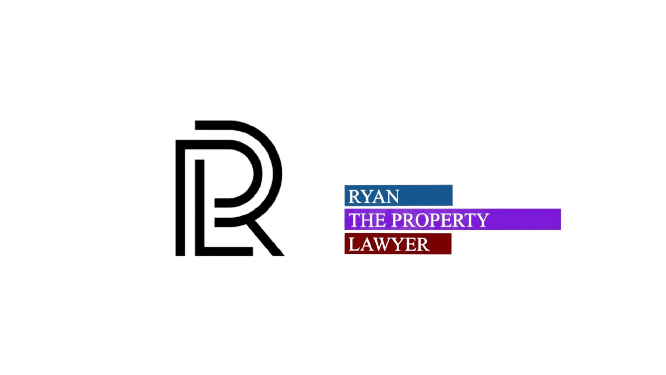Real estate fraud is a rising problem in the real estate market, and anyone is susceptible to it. Consequences can be severe when fraudsters defraud property purchasers and sellers using a range of deceptive strategies. In this article, I will discuss the various types of real estate fraud, how to identify them, and how to prevent being a victim.
Table Of Contents:
What is Real Estate Fraud?
Real estate fraud is the criminal use of deception or misrepresentation to obtain property or funds. It can occur at any step of the real estate transaction, from listing through closing, and can take on a variety of forms.
Real estate fraud is a heinous offense with major financial and legal repercussions. Also, it can harm a person’s reputation and future ability to acquire credit or do business.
Types of Real Estate Fraud
There are numerous varieties of real estate fraud, but the most prevalent include:
1. Mortgage Fraud
In order to secure a mortgage or loan, mortgage fraud happens when a person makes false representations or misrepresents their financial condition. This may involve misrepresenting their income, employment position, or assets.
2. Title Fraud
When someone forges or steals the title to a property and then sells or refinances it without the owner’s knowledge or agreement, they have committed title fraud.
3. Foreclosure Fraud
Foreclosure fraud happens when a person takes advantage of a homeowner who is facing foreclosure by promising to help them save their home, but instead taking their money and not actually helping them.
4. Investment Fraud
Investment fraud happens when someone presents a fake or nonexistent real estate investment opportunity. The investment may claim large returns or assured earnings, but it is a fraud.
5. Rental Fraud
When a con artist appears as a landlord or property management and collects rent or security deposits on a property they do not own or have the right to rent, this is rental fraud.
How to Spot Real Estate Fraud
Real estate fraud can be difficult to detect, however there are frequent warning signs to watch out for, such as:
1. Pressure to Act Quickly
Scammers frequently generate a sense of urgency to induce their victims to make a swift decision. They may assert that the property is in high demand or that the deal is valid for a short time only.
2. Requests for Money
Scammers frequently request payment in advance, either as a deposit or to cover costs. They may request payment in cash or via untraceable means, such as wire transfers or gift cards.
3. Inaccurate or Incomplete Data
Scammers may provide inaccurate or insufficient details regarding the property, the transaction, or their identity. They might utilize forged papers, aliases, or websites to appear authentic.
Unsolicited Proposals Scammers may contact potential victims with unsolicited offers, such as an investment opportunity that is “too good to be true” or a property priced below market value.
How to Avoid Real Estate Fraud
To avoid being a victim of real estate scam, you can take the following steps:
1. Use Qualified Professionals
Use renowned real estate experts, such as agents, lawyers, and lenders. Do research and verify their credentials prior to hiring them.
2. Validate Information
Check all the provided information, including the property specifics, the seller’s or buyer’s identification, and the terms of the transaction. Examine public documents, run background checks, and look for red flags online.
3. Be Suspicious
Be cautious of any unsolicited financial offers or solicitations. Ask inquiries, conduct study, and resist the urge to make a snap choice.
4. Safeguard Your Private Information
Safeguard your personal and financial data, such as your Social Security number, bank account details, and credit card information. This information should not be shared with anyone you do not trust, and you should be skeptical of any demands for it.
5. Use Safe Payment Techniques
Employ safe payment methods for any monetary transactions, such as credit cards or internet payment systems. Cash and wire transactions are more difficult to trace and reclaim in the event of fraud.
Conclusion
Real estate fraud is a major issue with potentially disastrous repercussions for its victims. Yet, if you know how to identify and prevent scams, you can safeguard yourself and your possessions. Always work with trusted professionals, check all offered information, be wary of unsolicited offers, and safeguard your personal and financial information. By implementing these measures, you may prevent real estate fraud and ensure the security of your property transactions.
Author Profile

Latest Blog
 Uncategorised22 December 2023What Constitutes a Legal Partnership in Ontario?
Uncategorised22 December 2023What Constitutes a Legal Partnership in Ontario? Uncategorised22 December 2023Characteristics of a Corporation in Ontario
Uncategorised22 December 2023Characteristics of a Corporation in Ontario Uncategorised22 December 2023Intentions Matter When Co-Owning Property
Uncategorised22 December 2023Intentions Matter When Co-Owning Property Uncategorised22 December 2023Consequences of Operating an Ontario Partnership
Uncategorised22 December 2023Consequences of Operating an Ontario Partnership




